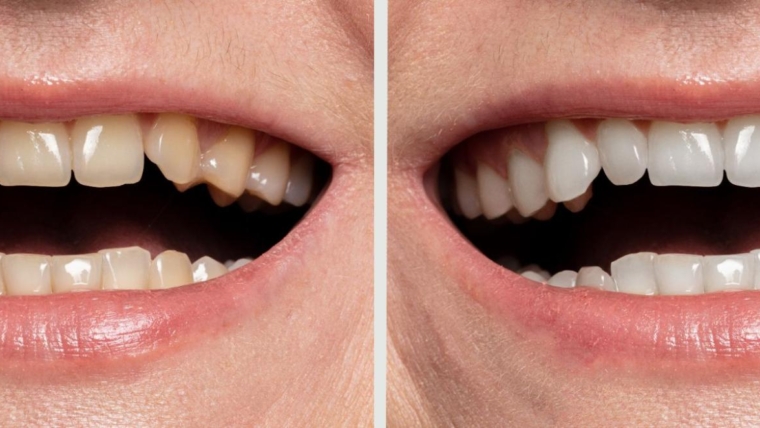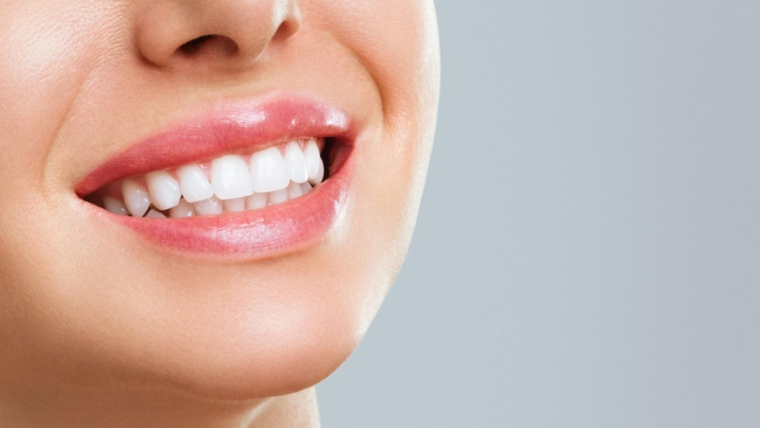Composite bonding is an effective cosmetic treatment that enhances your smile by reshaping or repairing teeth. But unlike natural enamel, composite resin is prone to staining — and many patients are shocked at how quickly discolouration can appear.
At Manor House Dental, your trusted dentist in Birmingham, we believe in equipping you with realistic expectations and preventive strategies. In this blog, we break down how fast composite bonding can stain, what factors speed up discolouration and how you can protect your investment.
Table Of Contents:
-
-
- What Causes Composite Bonding to Stain?
- How Soon Can Staining Appear After Treatment?
- High-Risk Habits That Accelerate Staining
- How to Prevent Stains on Composite Bonding
- Long-Term Maintenance Tips
- Keep Your Bonding Bright, Longer
-
What Causes Composite Bonding to Stain?
Composite bonding is made from a resin-based material, which is:
- Slightly porous
- Softer than natural enamel
- More prone to absorbing pigments

Unlike porcelain veneers, which resist stains exceptionally well, composite resin can discolour from everyday habits — especially when exposed to:
- Chromogenic foods and drinks (tea, coffee, wine, curry)
- Nicotine and vaping aerosols
- Poor oral hygiene
- Abrasive toothpaste or harsh brushing
How Soon Can Staining Appear After Treatment?
Staining can begin as early as 24 to 48 hours after bonding — especially if aftercare instructions aren’t followed.
Key timeframe to be cautious:
- First 48 hours are critical: the material is still settling and more vulnerable to pigmentation.
- First 6 months: The bonding is at its peak appearance and most susceptible to superficial staining from dietary and lifestyle habits.
If not properly cared for, noticeable discolouration can appear within weeks — particularly around the edges of the bonded areas or on front teeth exposed to staining agents.
High-Risk Habits That Accelerate Staining
Here’s what accelerates composite bonding discolouration:
| Habit | Impact Level | Recommendation |
| Drinking black coffee or tea | High | Use a straw, rinse after |
| Smoking or vaping | Very High | Quit or limit exposure |
| Red wine, berries, soy sauce | High | Limit frequency |
| Poor brushing technique | High | Use a soft-bristle brush |
| Skipping hygiene checkups | High | Schedule regular cleans |
Note: Many patients are surprised to learn that even healthy foods like beetroot and balsamic vinegar can stain resin.
How to Prevent Stains on Composite Bonding
To slow the staining process and maintain results:
- Avoid dark or acidic foods for 48 hours post-treatment
- Drink staining beverages through a straw
- Brush with non-abrasive fluoride toothpaste
- Floss daily to reduce plaque accumulation
- Rinse your mouth with water after eating or drinking
- Quit smoking or switch to less-staining alternatives
- Visit your Birmingham dentist for regular professional cleaning
Can Stained Bonding Be Fixed?
Yes — but the solution depends on the degree of staining.
- Mild stains: Professional polishing may restore brightness.
- Moderate to severe stains: The bonded layer may need to be partially or fully replaced.
- Uneven whitening: If you’ve whitened your natural teeth after bonding, you’ll likely need a shade adjustment or re-bonding to match.
We offer tailored solutions at Manor House Dental to help you restore your bonding’s appearance.
Long-Term Maintenance Tips

Composite bonding typically lasts 3 to 7 years, but its longevity depends on how well it’s maintained. Here’s a long-term care checklist:
- Routine dental cleanings every 6 months
- Avoid abrasive toothpastes (whitening pastes can scratch resin)
- Use an electric toothbrush with a soft head
- Use a night guard if you grind your teeth
- Avoid DIY whitening kits – they will not work on bonding and may worsen the mismatch
If you’re considering whitening treatments, always do so before bonding, not after.
Keep Your Bonding Bright, Longer
Composite bonding is a fantastic, cost-effective way to transform your smile—but only if you protect it. The resin used in bonding can stain within weeks if not properly cared for. Fortunately, with the right habits, you can maintain a bright, natural-looking smile for years.
At Manor House Dental, we help you not only achieve the smile you want—but keep it that way.
Want to Restore or Refresh Your Bonding?
Book a consultation with our expert Birmingham dentist team to evaluate your composite bonding and receive tailored guidance on stain prevention, maintenance, or replacement.



